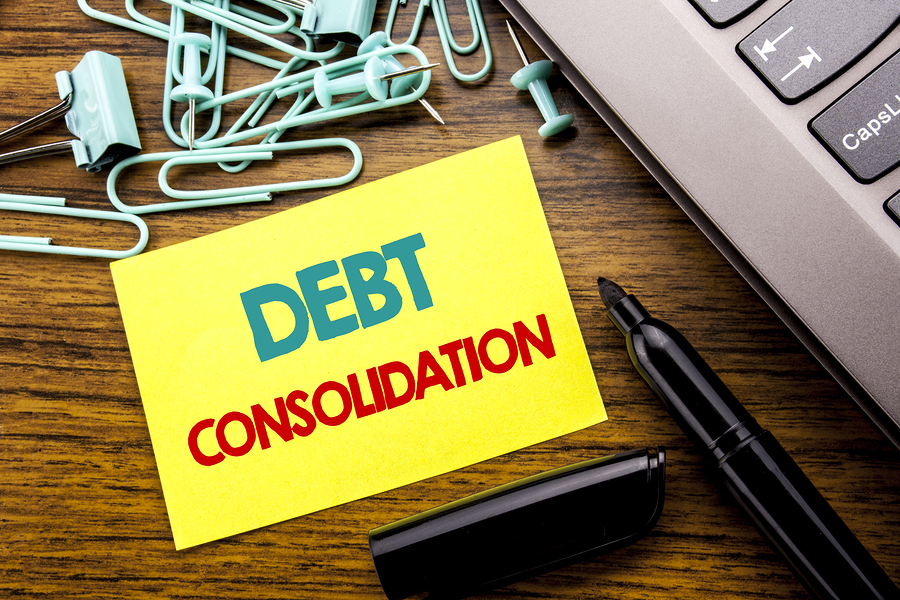There may come a point in your life when you have serious concerns about the amount of debt you’re carrying. If this happens, it’s important to carefully review your debt with the idea of improving your situation in the near future.
While there are many ways to handle debt, consolidation is often one of the best strategies.
Debt consolidation is exactly what it sounds like: you use a single loan to pay off smaller loans, thus leaving you with one monthly payment. Not only is this easier to manage, but you may also be able to save money on interest charges.
Here are three things you need to know about debt consolidation:
There is More than One Option
There is more than one way to consolidate debt. For example, if you have multiple credit cards with a balance, you can use a balance transfer credit card to bring your debt under the same roof.
If you have multiple types of debt, such as credit cards and personal loans, you could use a home equity line of credit to consolidate.
Tip: list out all your debt to ensure yourself of choosing the strategy that’s best for you.
Secured and Unsecured Loans
You can use either a secured or unsecured loan to consolidate debt. With a secured loan, you pledge some type of property to secure repayment. If you don’t repay the loan based on the terms and conditions, the lender can repossess the property.
An unsecured loan, on the other hand, is based on your promise to pay back the money. There is no property used to secure the loan.
The primary benefit of a secured loan is a lower interest rate, since the lender is taking on less risk. Conversely, since you’re putting up property, you’re taking the risk of losing it should you neglect to make payments.
With an unsecured loan, your rate may be higher but you don’t have to offer any collateral in exchange for the funds.
Tip: carefully consider the pros and cons of each option so that you understand which one best matches your financial situation and goals.
A Psychological Advantage
When you consolidate debt, you’re not doing anything to lower the balance. Instead, you’re simply putting some or all of your debt into one loan.
However, there is a psychological benefit of this approach. With one payment, you’ll feel better about organizing your debt and staying on track in the future.
Tip: don’t overlook the power of feeling better about your debt, as this can help you forge ahead during the most difficult of times.
Final Thoughts
Now that you better understand debt consolidation, it’s time to answer these questions:
- Can debt consolidation improve your financial situation?
- Are you most interested in a secured or unsecured loan?
- Are there any potential drawbacks that concern you?
As you answer these questions, among others, you’ll find it easier to proceed with confidence.


Related Posts :
Top Sources for Debt Consolidation LoansThe Top Benefits of Debt Consolidation and How to do It
How to Make Debt Consolidation Work for You
Interested in Debt Consolidation? Answer These Questions
What are the Benefits of Debt Consolidation?